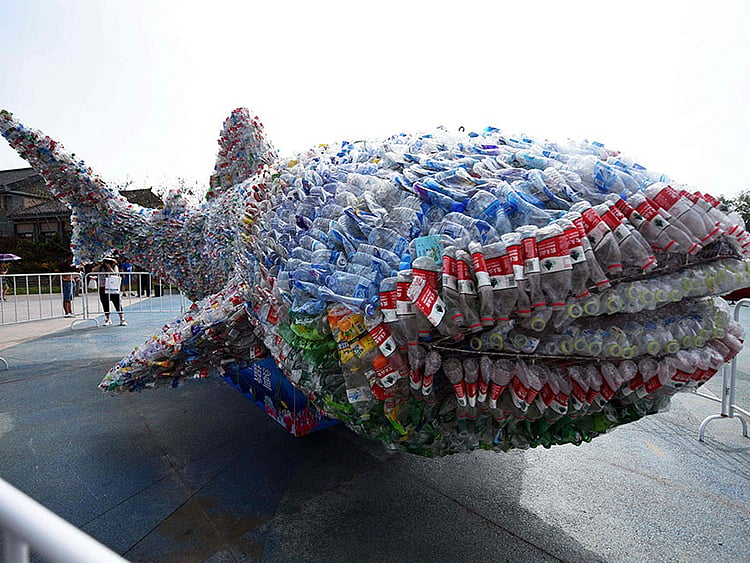UAE marine activists mark World Environment Day, June 5, with worrying message
Two UAE environmental experts raise the issue of marine debris and why sharks are key

Dubai: By 2025 it is estimated that there will be enough plastic in the ocean to cover five per cent of the earth’s entire surface in cling film each year. That’s according to Natalie Banks, founder non-profit marine conservation group, Azraq, who was speaking to Gulf News ahead of World Environmental Day on June 5.
Azraq also estimates that 44 per cent of marine animals and 86 per cent of turtle species have plastic in their gut.
At present 80 per cent of sea birds ingest plastic and 90 per cent of them have plastic in their guts but 99 per cent will be ingesting plastic by 2050 if current marine pollution trends continue.
Eight million metric tonnes of plastic go into the ocean each year - the equivalent of 16 shopping bags full of plastic per every metre of coastline.
Banks said adding to these woes is an increase in plastics production over the past 50 years from 15 million tonnes in 1964 to 311 million tonnes in 2014.
“Worse still, this number is expected to double again over the next 20 years,” she said.
Another environmental activist in the UAE, Gina Fernandes has created a mascot named Tilly the Turtle made from cigarette butts collected from beach clean ups.
Eight of these mascot cigarette murials have been distributed to schools in Dubai, Romania and also the United Nations Development Programme as well as the Vatican.
“Since 2017, over three million cigarette butts and 300 plus kilos of trash have been collected in Dubai,” she said. “The silent killer of all the plastics comes in the form of minute remnants, broken down from every day products,” she added.
Things improve with greater awareness but Banks said, “The oceans are facing enormous challenges from rising sea temperatures, invasive species, acidification, marine pollution, overfishing and the output from desalination plants. It is the same with the UAE oceans too, albeit with the salinity of the Arabian Gulf being a well-known factor, which raises additional challenges that are being researched globally.”
Shark awareness equally important
Having started her journey as a scuba diver, Banks said shark awareness was equally important.
“Sadly sharks are one of the most misunderstood marine animal, often vilified due to popular media which depict them as blood-thirsty man-killers, when in fact shark encounters are extremely rare and most times, sharks are more scared of us, than we are of them.
“As important apex predators, sharks have shaped marine life in the oceans for over 450 million years and are essential to the health of our oceans, and ultimately to the survival of humankind, however around the world sharks are in big trouble and are quickly headed for extinction.
“Some shark species have declined by over 90 per cent due to fishing, shark finning and shark mitigation strategies. Remove sharks from the oceans and we are tampering with our primary food, water and air sources. They are a critical component in an ecosystem that provides a third of our world with food, produces more oxygen than all the rainforests combined, removes half of the atmosphere’s anthropogenic carbon dioxide (greenhouse gas), and controls our planet’s temperature and weather.”
Sign up for the Daily Briefing
Get the latest news and updates straight to your inbox
Network Links
GN StoreDownload our app
© Al Nisr Publishing LLC 2026. All rights reserved.